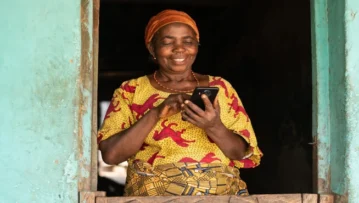Author Profile

My name is Siddharth and I’m a 15-year-old boy from England. I volunteer for Whose Knowledge? because I believe in spreading awareness of the problems that Whose Knowledge? tackles with my peers and teenagers like me. My interests are cricket, technology, coding, science and sometimes cooking!
How many of you reading this have browsed the internet today without thinking twice about the language it is written in? Not many, I’m sure. How many times have you seen news articles about only white people and no one else and did not question it? Not many either, perhaps.
While using these sites, I never exactly thought twice about how convenient it is that everything is already in English and not in a language that I don’t speak. Neither did I stop to think about how often news articles can be misleading, and therefore inaccurately present information with hidden racial biases.
When I started to read some stories on the site, I was honestly shocked. I never would have realised all the disadvantages the minoritised faced today.
Before I volunteered with Whose Knowledge?, I was simply in the dark about some of the hardships people from minoritised groups face every day.

For example, there was a climate change press conference in early 2020 hosted in Davos, Switzerland, with climate activists from around the world including Greta Thunberg, Luisa Neubauer, Isabelle Axelsson, and Loukina Tille.
Vanessa Nakate, a Ugandan climate activist, also attended. When a picture was taken of all five young women at the press conference,Vanessa was cropped out of the image before it was posted to Twitter.
Stories like this happen everywhere on the internet, and the consumers of this media are utterly oblivious to it as there is no evidence that this is happening in the first place.
These are the kinds of stories that I uncovered when I started understanding what Whose Knowledge? does and why. More importantly, people simply do not have the evidence that these kinds of events are occurring everywhere on the internet and more importantly, in real life.
After discovering all this new information, I instantly took to Instagram to share my thoughts and awareness with my fellow peers, and I was delighted by the response I got from some of them. They all had the same reaction as me and were simply astonished at how all these acts get carried out right under their noses.
One more area that I had little to no knowledge, before I joined Whose Knowledge?, was the little to no support for other languages that are not English.This graph shows that half the internet is in English and only about 5% each for European languages and only 12% for all the other 7000 languages that exist in the world.

This means that people who can only speak one language that is not English or a European language cannot harness the internet’s usefulness. Particularly, indigenous people or others who only understand their own languages.
Because of this, these unique languages that have rich cultural history are slowly being driven to extinction due to the internet being such a strong influence and forcing people to learn other languages.
Many English-speaking people do not give a second thought about this when using the internet and creating websites – which is something that I have started to notice when browsing the internet.
Overall, the time I have spent with Whose Knowledge? helped me see the world through a different perspective. The time I have spent researching various aspects of what Whose Knowledge? does, it has only had a positive impact on me.
Now when I browse the internet, I find myself always asking the question: whose knowledge is it, and who or what is missing?
This post was written by Siddharth for Whose Knowledge?




